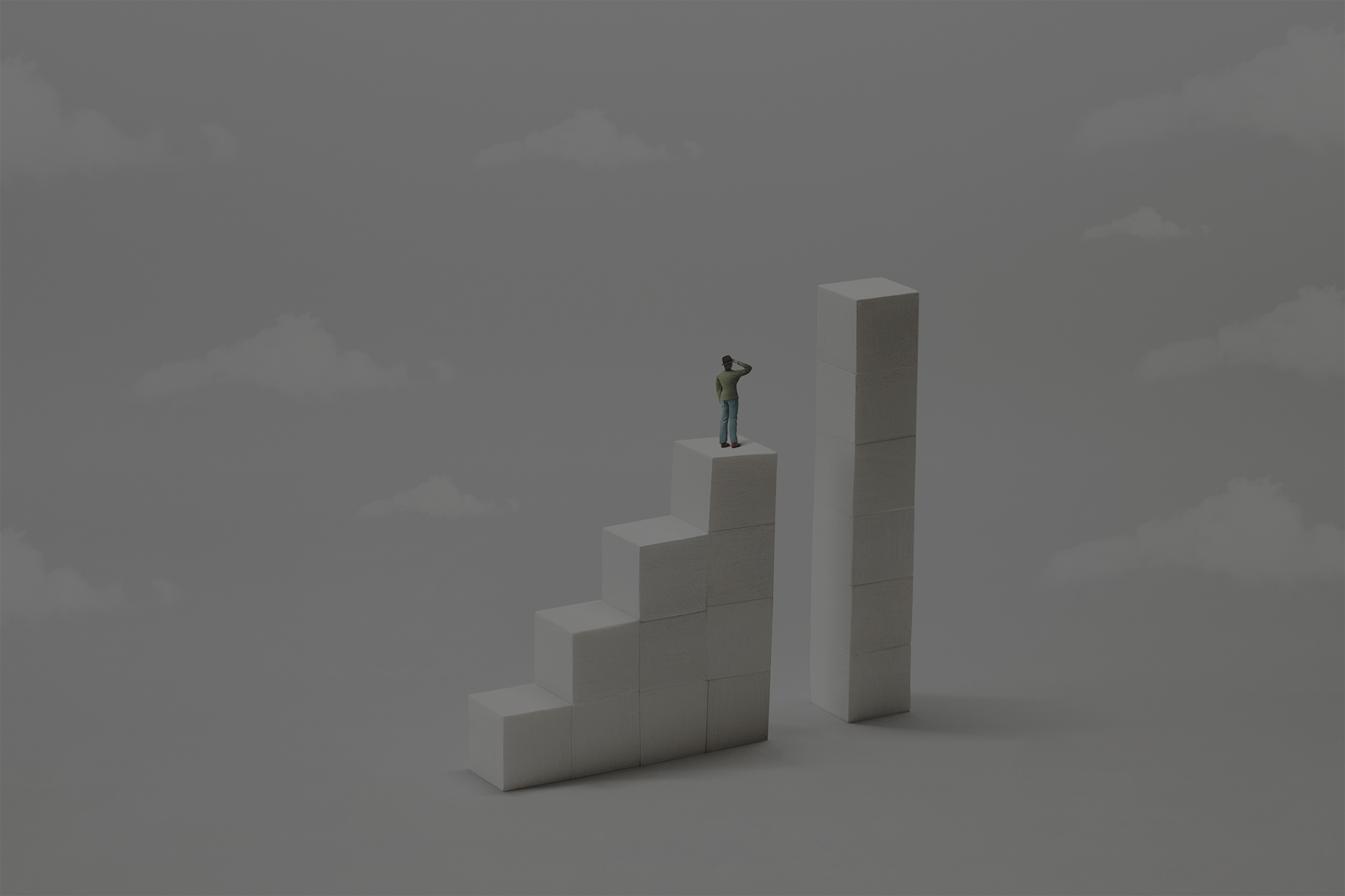
Podcast: Play in new window | Download

We will not succeed if we simply stay where we are and refuse change or improvement. But trudging the path to the next level of your life means facing your anxieties, financial challenges, and personal issues. To address this, Patrick Donohoe presents his course, The Wealth Standard, which focuses on helping people embrace a better version of themselves. He concentrates on getting rid of the thoughts that limit our beliefs, finding your true value as a worker, and looking at leadership from a brand new perspective. Self-fulfillment can only be achieved if you know where you are leading your life, and it starts by transforming yourself.
—
Watch the episode here:
Listen to the podcast here:
How To Bring Your Life To The Next Level
I’m grateful to share some thoughts with you. It’s been a while since I made an episode, especially a solo one, but I’m back. I’ve spent time developing and creating content for the new digital course that has officially launched. You guys can get more information about that course by going to Go.TheWealthStandard.com/freedom. What I like to do is talk a bit about the course, how I came up with the content, but then also unpack and dive into some of the primary themes in the responses you gave me through your candid feedback, as well as thoughtful responses to questions. That’s where I’ll start because the course is something I could have assumed I knew what you needed, what you would have valued, what was holding you back in your particular situation.
I’ve done that in the past. Sometimes it works, sometimes it doesn’t. This go-around, I decided to get responses from you to understand your world, what holds you back, and what are some of the obstacles that you’re facing. I’m humbled by the hundreds of responses I received. It made me dig down deep to understand the true root cause of those challenges, obstacles and limitations that are holding you back. What I discovered is that these are some things that have held me back in the past. These are parts of the human experience. We’re faced with similar obstacles, at the same time, the situations are all different.
I’m grateful to you. I’m grateful to have been able to think through the way in which the curriculum is created and the exercises were formulated. If you want to take your life to the next level, then this is a course that is for you. It has a 30-day money back guarantee. If you buy it and you hate it, don’t like it, too intense, too much information, I didn’t even give you all the information at one side to stagger it out week upon week because of how much is in there, but I’ll give you your money back, no questions asked. What I’d like to do is get into a couple of the primary themes that I saw in the responses that you gave me. I believe that this will give you insight into how I developed some of the information as well as exercises.

The Next Level: Today’s society wants things quick and fast, and with the snap of a finger or a click of a button.
—
A Year of Disruption
Thank you for investing your time and your energy. It says a lot about you and it means a lot to me because I’m inspired by those who are driven, those that are seeking information to improve their lives. I’m grateful to you. 2020 was a year of disruption. This season has been disrupted, especially here in Utah, and we weren’t able to gather as we have in the past. It makes you think about how grateful you are for the things that you have, because when they’re taken away, that provides that polarity. 2020 has been full of those opportunities. I hope you have passed your weekend grateful and had a wonderful experience. I haven’t done an episode in a while. Many of you know that I have been working on a digital course since I’ve been neck deep in recording, re-recording, and it’s been a great experience. This go-around has been different because of your involvement. I had reached out to a number of segments of the audience and pulled them, and requested feedback and answers to questions. This go-around, I wanted to create content, create a course that served you at a higher level by addressing your primary concerns, your anxieties, the things that are holding you back the most from achieving that next level of life, that financial freedom or financial independence that you and everybody else is ultimately seeking.
Your responses were heartfelt and your candor was incredible. I’m appreciative and grateful for that. What I’d like to do is give you a snippet of what the course is going to entail by addressing one of the patterns that I’ve seen throughout the responses. These are patterns are everywhere and they’re in greater magnitude these days. I believe we live in a society that wants things quick and fast with the snap of a finger or a click of a button, and looking at freedom and achieving that level of life, and then continuing to achieve it because it is not a one-time event. It’s challenging for most because they see it as a possibility, whether it’s what they see on social media, whether it’s what they read in books.
That pursuit and desire is amplified. I have had the fortunate opportunity of working with a lot of people with their personal finances. I’ve come to these conclusions or these realizations that ultimately, money is a part of the equation, but it is not the primary variable to freedom and independence. Hopefully, that comes out in what I’ll talk about. There are practical strategies, things to do, things to do differently, things to stop doing, things to start doing, but there is a mindset shift that is necessary. The variables or the components of that mindset shift will be evident because not only do I want to go through a specific response to a question. The question being, what are the primary obstacles that are holding you back from living a life at the next level? It pertains to a person, but you can substitute any obstacle that you have, where you stand in a specific place in life.

The Next Level: If a business wants to grow, it has to innovate and find better ways to meet the needs of their customers.
There is a future that you desire and you yearn for. There’s a gap or an in-between. There is what needs to take place in order for you to be at that level. Our psyche often times puts these barriers in place and prevents us from taking risks because naturally we want to avoid fear, and that fear is embedded in our DNA. Mostly it’s irrational at the same time because it’s built into us. It’s challenging for us to rationalize being able to confront it and overcome it. Let’s get into this example. I hope you find some meaning and some value in it. The course is life. Version one is up. I plan on doing lots of iteration and that’s why I kept the price point on the course low so that I can get a bunch of users experiencing it, giving feedback with both the exercises that are there, as well as the content and continue to iterate and make it even more valuable.
You can go check out version one. If you buy this first version, even though the price is going to go up in the future, you can get all those different versions, those upgrades for free, but you can go to Go.TheWealthStandard.com/freedom. This is the obstacle that I’m going to be addressing. The question, what are the primary obstacles that are standing in the way between where you are now and where you want to be in the future, that life at the next level? This specific response was short but I saw this pattern in dozens, if not more of the responses, and there were hundreds of responses. This one was, “I don’t have a business. I am an employee.” These are obstacles you can replace whatever obstacle you have as you ask yourself that question, what is the primary thing that is in the way of me achieving that life at the next level? “I don’t have a business, I’m an employee.”
There could be a multitude of meaning within what they have responded. I’m going to get into a few of them, but it’s an obstacle. The first thing is having a business. If that is the barrier that’s in the way to achieving an amazing life, business is a masochistic and risky way of doing it because the majority of businesses do not succeed. The majority of business owners who get divorced lose their relationships with their kids. They put huge investments and lose those investments, and put people’s lives on the line.
Money is a part of the equation, but it is not the primary variable to freedom and independence. Share on XAchieving Financial Independence
It’s stressful. I’ve been in business for several years and almost going out of business a number of times. There’s a deep desire inside of me that pushed me through and had me persevere through some challenging times where I wanted to be done, but going to life at the next level as business owner, there are even more opportunities and possibilities to achieve financial independence and meaningful life by being an employee. That’s what I’m going to focus my attention because in the end, I believe that successful business and being a successful employee have same dynamic. The only difference is scale, because a business provides a service. An employee provides a service. If a business wants to grow, they have to innovate and find better ways to meet the needs of their customers.
If it’s an employee, it’s a great way to innovate where you can look at the service and the value you’re being paid for, and find ways to improve the value to reach and meet the needs of the person that’s paying you. It’s a different perspective. Sometimes employees look at this entitlement where they should receive a raise for doing nothing. You can flip that and ultimately get even more money through bonuses, raises and position increases. They allow you to make more money and with that additional money, it’s making investment. It’s saving and establishing what I define as financial independence. For those of you who have read the book, you are familiar with this. It’s when 50% of your income comes from the cashflow of investments. The other 50% comes from doing meaningful work on your terms.
Fifty percent can be established by making a lot of money as an employee, but along the way, the resume you build, the human life value balance sheet that you create by your experiences, by the relationships and the network you’ve built can position you to spend twenty hours a week doing meaningful work, and being paid a multiple of what you are paid now. That’s what I’m going to get into because the dynamic, the components, the variables of success of both a business and an employee are the exact same thing. The only difference is scale but I’m going to give you some ideas as far as scale is concerned and how to scale yourself as an employee. The first thing I’m going to do, and this is where I took a direction with a course based on the responses you gave me, because there are many different tactics, strategies, ideas, advice and insight I could give you, but unless there is a breakthrough with your psychology, then all you’re going to be doing is looking for what’s wrong.

The Next Level: 50% of income comes from the cashflow of investments. The other 50% comes from doing meaningful work on your terms.
Limiting Belief
You’re going to be trying to find this confirmation bias, it’s finding the evidence of why your obstacle and what you’ve stayed as your limiting belief is true. Until you can start to question the validity of your limiting belief, no solutions are going to resonate. That’s where I’m going to start. There are some exercises in the course that facilitate the breakthroughs that you can have in order to look at yourself, your beliefs, and your limiting beliefs differently, creating empowering beliefs, and positioning your psychology so that you can be open to the slew and myriad of opportunities that are all around you. I’m going to use a simple example, but there are much more deep and profound experiences within the course that you are going to find fascinating. These are the experiences that I’ve had over the last few years that have given me tremendous breakthrough in my own personal life and my own happiness in my business.
I replicated those for your benefit, but I’m going to go through one. If I was talking to a client, an employee, a friend, my wife or my kids, and we were having a conversation about something that is holding you back, what I would first do is to address the feelings and emotions associated with that limiting beliefs. In this case, the limiting belief is, “I have to have a business. I’m an employee. I have to have business in order for me to be free.” When you think about that, financial independence and life of the next level isn’t possible because in order to do that, you have to have a business. You have to do your own thing.
How does that make you feel? The response is, “I feel held back. I feel frustrated. I’m not motivated. I’m challenged.” I would follow up with, “When you feel this way, do you even want to pursue anything that could potentially get you there? The answer is, “No way, I don’t even want to take that first step.” When you tell yourself this story that you have to own a business in order to be financially independent, in order to achieve the next level of life, you have all the information and you’ve pulled everybody. Do you know beyond a shadow of a doubt that that statement is true? That in order for you to be financially independent and live a life of the next level, you have to own a business.
Unless there is a breakthrough with your psychology, all you're going to be doing is looking for what's wrong. Share on XThis is where the eyes roll sometimes, but that’s intentional because what it does is it gets a person to say that “No, I don’t have all of the information. It could be possible that life of the next level is there, and I don’t have to own a business in order to achieve it.” First, it interrupts the belief or that confirmation bias. We’re looking for information to validate what we already believe. What this does is it opens our mind to this new opportunity that it is possible. Simply saying the words that, “I don’t have all the information. It could be possible.” It’s associating the emotions with it. The emotions are those agents of confirmation.
The emotion is if it were true that you didn’t have to be a business owner. You could be an employee to achieve that level of financial independence. How does that make you feel? That’s when they say, “I’m optimistic. I feel that it’s possible. I believe that there may be somebody out there that can help me or give me some insight or give me some information for me to believe that even more.” That’s where it starts. That’s the first domino that needs to be knocked down in order to start positioning strategy. That’s where limitations are concerned and why I positioned the first part of this digital course as breaking through the limiting beliefs.
Following that up with the actual strategies, a person can pursue to make changes, to make adjustments, to get more information, and to execute on that information. I know that if I started with that like I have in the past, most individuals are not in the mindset. They don’t have the psychology of making changes. In one episode that I did, the biggest fears that people have are being wrong and having to change. This is one of the exercises that could potentially work. In this digital course, there are a few other exercises that help you navigate through some of those limiting beliefs and start to replace them with empowering beliefs. Let’s get into solutions because psychology is one thing, but if you’re open to new possibilities and to having additional information, change is likely not to occur.
Value As An Employee

The Wealth of Nations
A business and employee are similar. They both provide a service of value in which they’re paid for. The only difference is scale. In a business, multiple people are involved. A famous definition of scalability is by Adam Smith when he talks about the pen factory in his book, The Wealth of Nations, where he identified that one person making all the different parts of a pen and putting it together has a certain amount of output at the end of the day. If you divide that labor, the division of labor, where multiple people are involved, each of them is responsible for one piece of the assembly, then you’re able to have scalability. The output is a multiple. That’s the idea of scale. There’s scalability possible for an employee, but you first have to identify the value that you provide as an employee. We’re all wired to look at ourselves and to come to a determination of why we’re valuable, rarely do people step outside of them and define, “Why does an employer think I’m valuable? What do I do? What is it about what I do that I’m paid for?”
This comes down to doing an audit of the different tasks and responsibilities and where you spend your time during the day. There are tasks that are meaningless or tasks that have low value. There are the tasks and the value that you’re paid for. In the process of doing this, you’re starting to look at yourself as the customer or the client. The patron looks at you, in this case, it’s your employer. This is a key to business. Peter Drucker says that to grow a business, you have to have focus on two things, innovation and marketing. Innovation is constantly finding even better ways to serve and meet the needs of your customer or client. Marketing is getting people to do more business with you. Looking at employee and employer relationship, this is where you start to understand the needs of the employer. What are they trying to do? What’s their revision? Were they trying to achieve? What are they trying to accomplish? How can I do something potentially different to bring even more value to them? If you go through this process as an employee and bring that success to a business, you’re going to have a much higher likelihood of being a success in business.
You might as well figure out how to do it as an employee first. I look at being an employee as one of the most incredible ways to experiment and to do things that potentially could be incredibly risky as a business, but doing it as an employee, there’s more agility and resilience because you can try things. If it doesn’t work, try something else. The worst thing is you can get a slap on the hand or get fired, but then you can go find another position where as a business, there are people’s jobs that are on the line. There are expenses, leases and other commitments that you’ve made that are on the line. Whereas an employee, there’s more resilience associated with experimenting on the ways in which you can create even more value. Coming from an employee, it’s finding leverage in the tasks that you’re already doing and defining all the different things you do throughout the day and what you’re paid for. As you look for more ways to scale, that’s an easier way to scale.
Identify yourself as the asset, find out why you're paid, and figure out how to make that asset even more valuable. Share on XLooking at it from a position standpoint, are there other positions that you would be better at, that you could be paid for? This is going to, what’s your skillset? What’s your experience? What do you love doing? That’s going to give you those nuggets where you can start to look for other positions, whether it’s inside the company that you’re with or within the employee base of another company. Nonetheless, it’s starting to identify yourself as the asset and find out why you’re paid and figuring out how to make that asset even more valuable. There’s an eBook that I wrote a number of years ago before my official book came out and it’s essentially how to invest in a $50 million asset, which is you.
A Look At Leadership
What it does is it shows the math behind instead of getting a 3% raise per year, which is customary, you get a 10% raise per year. That 10% doesn’t come about by entitlement. That 10% is going to come about by you being more valuable and demonstrate that in the digital course as well. Let’s segue into an essential variable or dynamic of a successful business. It’s also an essential component of a successful employee. This is leadership. We are conditioned in our society to look at leadership from a hierarchical perspective. There is tenure within the public-school systems. There is the vice principal, the principal, the superintendent, the same structure exists in government. In corporations, the same structure exists.
We get this idea that leadership is management, but I believe that management in and of itself is a horrible way to get leverage. Leadership-focused management is an empowering way. Management is getting people to do things whether it’s usually by a stick. Rarely it’s a carrot, but I believe that even stick and carrot are limiting. There is a way in which you can empower people to do good work. Leadership is a huge opportunity because the majority of employees are conditioned to look at leadership as a hierarchical management structure. I think that’s limiting. It’s figuring out how to hone in on your leadership abilities, your ability to involve others in projects and get scale. Use that division of labor dynamic. This could come from reading books and taking courses. It’s the experimentation side of things. It’s learning how to be a good leader, finding mentors whether it’s direct or indirect, and incorporating their style of handling meetings, their style of executing projects or being part of a project.

The Next Level: Focus on the areas that you’re best at and allow others to fill roles that they’re best at.
The leadership dynamic is huge because it’s empowering people, especially in our day and age, when you have a fleeting employee base, where employees are jumping from company to company for a 2%, 3%, 4% raise. Maybe a little bit more benefit here. What’s going to keep them is good leadership, which is caring, empathy, but also instilling in them a desire to do good work and even more good work after they’ve done the initial good work. Leadership is huge because that’s when you can work in teams and get way more done. You can focus on the areas that you’re best at, and allow others to fill roles that they’re best at.
A Meaningful Life
That right there brings about a greater output. That is essential for scaling as an employee. I know a lot of people that make high six figures and even seven figures in the employee world. This is where sometimes research into, what is the maximum income that you can earn in your position or a position that you desire? What does that look like? Start to define what is inside of the gap between where you’re at right now, what you’re paid for and what a person at that caliber is paid for. All along the way, you’re making more money. The point is it’s not to solely reliant on your profession to achieve that end result, that financial independence or a meaningful life.
It equips you to, number one, establish an asset base that is providing cashflow that covers your lifestyle. Second, it’s to be able to evaluate what you’re doing inside of your work as an employee and always, either find ways to have more enjoyment, success, achievement and fulfillment. If you don’t, you have a lot more latitude because of how you’ve established your assets to either move to a consultant position or to a part-time position. Move from company to company, if that environment is not suitable to the terms and conditions you set up for yourself as far as defining a meaningful life and a meaningful career.
In the end, retirement is a flawed idea, which is 100% living off your assets. We’re wired to create value. We’re wired to contribute and improve the lives of others and in the process, improve our own lives. That’s a natural occurring energy that keeps us alive, happy and fulfilled. Without it, it doesn’t matter how much money you have, fulfillment is unlikely. Looking at the continual pursuit of improving yourself as an asset, whether you own a business or not is going to be vital to achieving this financial independence, whatever that next level looks like for you. This is where it all end. Even if you get to that 6, 7 figures and you’re a highly valued or highly paid employee, it doesn’t mean that you have to stay in those positions. You can look at consultant positions and being on boards.
You could be part-time. You could be a contractor or a free freelancer, and do work from anywhere in the world on your terms. That’s where a big piece of the course comes is to help you define what are the terms. What is the criteria? What is life of the next level look like? You can define that first and have that end result always in your mind. More often than not, people don’t necessarily come up with a clear definition of what they’re after or the results that they want. They go through the motions on a daily basis without the milestones that are necessary to get to that end result. The clarity that one can get from establishing that ideal life and a life on their terms is powerful.
Unequivocally, I see individuals coming to the conclusion and realization that to live life at that level, it doesn’t require what they thought it was going to require. It’s a lot easier. At the same time, this is a process. There are many people that are struggling because of our environment. I empathize with that. I understand that there is disruption. At the same time, there are incredible opportunities for those that exercise the fortitude of a healthy and abundant mindset because opportunities are everywhere. Thanks again for reading. Thanks for investing your time into educating yourself. Hopefully, this message has resonated with you. Go check out this new course called A Path to Financial Independence. It’s at Go.TheWealthStandard.com/freedom. Next, I’m going to be tackling another insightful obstacle that many of you had expressed in relation to achieving that life at the next level, and that is taking time and money away from family. In this case, wife and children. It’s the confidence to commit more time and money into a business, but also keeping spouse and children in mind. That’s what I’m going to tackle next. We’ll see you next time. Bye.
Important Links:
Love the show? Subscribe, rate, review, and share!
















